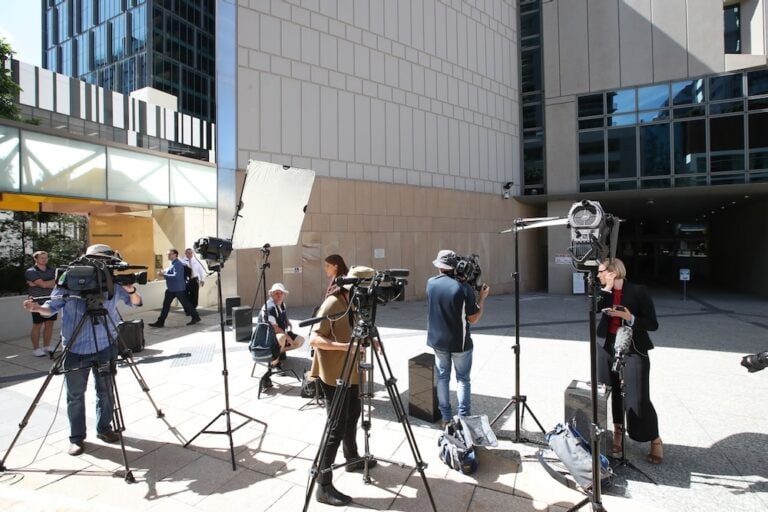(RSF/IFEX) – Reporters Without Borders has expressed shock that the editor of a student magazine became the subject of an investigation under a federal anti-terror law after being denounced on an “anti-terrorist” hotline. “This was an example of an unfortunate use of Australia’s freedom-impinging laws,” the press freedom organisation said, calling for legislative reform to […]
(RSF/IFEX) – Reporters Without Borders has expressed shock that the editor of a student magazine became the subject of an investigation under a federal anti-terror law after being denounced on an “anti-terrorist” hotline.
“This was an example of an unfortunate use of Australia’s freedom-impinging laws,” the press freedom organisation said, calling for legislative reform to avoid future mistakes that could threaten fundamental freedoms.
Jess Moore, 24, who runs the student monthly “Tertangala” (“Smoke Signal”) in the coastal town of Wollongong, in south-eastern Australia, was suspected of attending a meeting in support of the Islamist movement Hamas on 18 October 2006. In Australia, Hamas and the Lebanese-based Hezbollah are considered terrorist organisations and all support for them is punishable under anti-terror laws.
In fact, Moore had gone with around 20 other students to attend a conference as a student activist and journalist. The meeting had nothing to do with Hamas however, but with the homophobic policies of the Australian government.
Misled by the message left on the hotline, police in Wollongong were alerted. A police inspector turned up at the campus before realising the error. Police in Wollongong however, told Moore – who is also an anti-war activist – that the investigation against her was continuing.
The “Sydney Morning Herald” reported the incident and Moore said she was stunned by the investigation, which she had only been told about on 5 December, two months after the meeting. “I spoke to several lawyers and they told me to take this case seriously,” she told a journalist on ABC Online.
“This student who had absolutely nothing to do with terrorist groups was the subject of a secret police investigation,” said Reporters Without Borders. “The government would do better to support student newspapers rather than to act against them.”
On 6 December 2005, the Australian Parliament adopted the Australian Anti-Terrorism Act 2005, which provides for penalties of up to five years in prison for anyone in contact with a person suspected of terrorism. Journalists investigating terrorist activity could be arrested by police, particularly if they publish the names of suspects. Under the new law, reporters have no right to refuse to reveal their sources in terror cases. Security forces can also conduct searches of media premises for evidence in such cases.


